
Organic foods are made in a way that complies with organic standards set by national governments and international organizations.
 In the United States, organic production is a system that is managed in accordance with the Organic Foods Production Act (OFPA) of 1990 and regulations in Title 7, Part 205 of the Code of Federal Regulations to respond to site-specific conditions by integrating cultural, biological, and mechanical practices that foster cycling of resources, promote ecological balance, and conserve biodiversity. For the vast majority of human history, agriculture can be described as organic; only during the 20th century was a large supply of new synthetic chemicals introduced to the food supply. This more recent style of production is referred to as "conventional." Under organic production, the use of conventional non-organic pesticide (including insecticides, fungicides, and herbicides) is precluded. However, contrary to popular belief, certain sprays and other materials that meet organic standards are allowed in the production of organic food. If livestock are involved, the livestock must be reared with regular access to pasture and without the routine use of antibiotics or growth hormones. In most countries, organic produce may not be genetically modified. It has been suggested that the application of nanotechnology to food and agriculture is a further technology that needs to be excluded from certified organic food. The Soil Association (UK) has been the first organic certifier to implement a nano-exclusion.
In the United States, organic production is a system that is managed in accordance with the Organic Foods Production Act (OFPA) of 1990 and regulations in Title 7, Part 205 of the Code of Federal Regulations to respond to site-specific conditions by integrating cultural, biological, and mechanical practices that foster cycling of resources, promote ecological balance, and conserve biodiversity. For the vast majority of human history, agriculture can be described as organic; only during the 20th century was a large supply of new synthetic chemicals introduced to the food supply. This more recent style of production is referred to as "conventional." Under organic production, the use of conventional non-organic pesticide (including insecticides, fungicides, and herbicides) is precluded. However, contrary to popular belief, certain sprays and other materials that meet organic standards are allowed in the production of organic food. If livestock are involved, the livestock must be reared with regular access to pasture and without the routine use of antibiotics or growth hormones. In most countries, organic produce may not be genetically modified. It has been suggested that the application of nanotechnology to food and agriculture is a further technology that needs to be excluded from certified organic food. The Soil Association (UK) has been the first organic certifier to implement a nano-exclusion.
Organic food production is a heavily regulated industry, distinct from private gardening. Currently, the European Union, the United States, Canada, Japan and many other countries require producers to obtain special certification in order to market food as "organic" within their borders. Most certifications allow some chemicals and pesticides to be used[citation needed], so consumers should be aware of the standards for qualifying as "organic" in their respective locales.
Organic food production is heavily regulated industry and requires producers to meet certain special certification, for them to market their organic product. This means that all products must be manufactured in a way that adheres to the guidelines and high standards set by country they will market. How about products made with organic ingredients? Yes, it is still considered organic, provided that these claimed organic products consist of 70% organic ingredients, except for added water and salt. Take note that it should not contain added sulfites, the rest of 30% can be non-organically produced.
So, we therefore conclude that the organic production is food which is non-chemically treated, minimally processed, and fresh. People who do not want to put all the chemicals in their body must purchase organic foods which are indicated in the product label.
Organically grown foods are becoming more popular as people worry more about the health and the safety of the food they eat. What is organic food? Where can you buy organic products?
According to the USDA, organic foods are described as:
Organic meat, poultry, eggs and dairy products come from animals that are given no antibiotics or growth hormones. Organic food is produced without using most conventional pesticides, fertilizers made with synthetic ingredients or sewage sludge, bioengineering or ionizing radiation.
The USDA categories food products into:
100% organic: Must contain 100 percent organically produced ingredients.
Organic: Must contain at least 95% organic ingredients.
Made of organic ingredients: Must contain at least 70% organic ingredients.
Have some organic ingredients: May contain less than 70% organic ingredients.
Historically, organic farms have been relatively small family-run operations, which is why organic food was once only available in small stores or farmers' markets.[citation needed] However, since the early 1990s organic food production has had growth rates of around 20% a year, far ahead of the rest of the food industry, in both developed and developing nations. As of April 2008, organic food accounts for 1–2% of food sales worldwide.
Organic vs. Non-Organic
What foods should you buy organic? It seems like the organic section of the grocery store is expanding, but are organics worth the price?
We have young children at home and I always error on the side of buying organic produce. We also get our veggies from an organic farm, see link below, so I rarely buy produce at the store. Once in a while I want an item not provided from our farm, the list below will help to decipher what to buy organically and not organically.
The today show recently came out with a list of the foods that you should buy organically, i.e., these foods are not as effected by pesticides, and a list of foods that it's not worth spending the extra money to buy organic. The group of foods that you should buy organically they call "The Dirty Dozen"; these foods still have pesticides even after they are washed.
Why You Should Choose Organic Foods?
Nutrition - Organic food is rich in vitamins, minerals and enzymes which will help your body fight off infections more effectively.
Toxin-Free - Since It is pesticide-free, it lowers the risk of cancer and some birth defects.
Taste - Organic products tend to taste better than non-organic ones. For example, a study by Washington State University in 2001 claimed that organic apples were sweeter and had firmer texture, compared to those of conventional farming.
Environment - Organic farming is better for the environment since it does not use toxic chemicals that will run off to pollute soil and water. Also, it promotes a use of the land that will maintain richness in the soil for supporting the needs of the next generation.
A growing number of people have begun to prefer buying organic foods because they believe that they will get more benefits from them. Some people claim that there is no difference between organic and non-organic food.
The Downsides of Organic Food
Cost - Organic foods usually cost 10 - 40% higher than non-organic products because of the following reasons: 1.) They are produced on a smaller scale and usually must be cultivated by hand, and that labor is expensive. 2.) Farmers need compensations for their lower yields, as some of their crops are lost to insects and animals. 3.) It is also more expensive to raise animals humanely than to keep them in small pens and cages. Pasture raised animals require a lot of space, and supplementing their grazing with organic feed costs a lot more than simply feeding them the least-expensive non-organic grain available.
Appearance - Organic fruits and vegetables are likely to be less-perfect looking. You may not be able to find a perfectly shiny organic apple or a beautiful organic lettuce, but keep in mind; don't let looks fool you.
Food which You Should Buy Organic
Cotton truly is the fabric of our lives. It is found in some form and percentage in most clothing and fabrics, as well as vitamin bottles and other things. Cotton is steeped with pesticide residues. It is also one of the worst markets for child labor. Organic cotton is clean, and it raised and harvested responsibly and ethically.
Rice is eaten by a large percentage of the world's population. It is used in baby foods and cereals and people with wheat allergies can often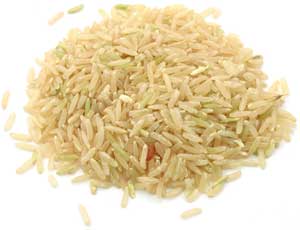 eat things made with rice flour. With this much rice being ingested it is important that it be free of chemicals and toxins.
eat things made with rice flour. With this much rice being ingested it is important that it be free of chemicals and toxins. 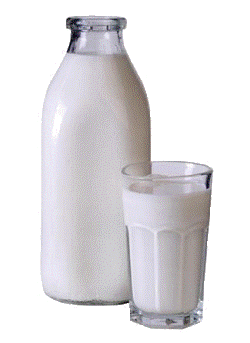 Milk is used in most recipes. Children often drink milk by the glassful. A large percentage of dairy companies routinely inject their cows with growth hormones and other medications to make them manufacture more milk. To keep the cows form getting mastitis and other illnesses they are injected with antibiotics. The feed is full of pesticides and genetically modified corn. Many dairies now use the process of ultra pasteurization to kill off the germs in milk and make it last much longer on the shelf.
Milk is used in most recipes. Children often drink milk by the glassful. A large percentage of dairy companies routinely inject their cows with growth hormones and other medications to make them manufacture more milk. To keep the cows form getting mastitis and other illnesses they are injected with antibiotics. The feed is full of pesticides and genetically modified corn. Many dairies now use the process of ultra pasteurization to kill off the germs in milk and make it last much longer on the shelf.
Green Beans are next on the Twenty Most Important Things to Buy Organic list. They are easy to grow yourself on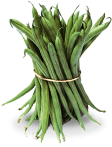 very little land. The EPA has at least 60 pesticides on file that can be used on green beans. Much of the ff season crops are grown out of the country where the regulations are more relaxed. Some of these countries allow the use of pesticides that the United States has made illegal.
very little land. The EPA has at least 60 pesticides on file that can be used on green beans. Much of the ff season crops are grown out of the country where the regulations are more relaxed. Some of these countries allow the use of pesticides that the United States has made illegal. 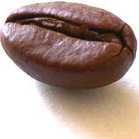 Organic coffee is grown responsibly and without pesticide use. Not only that, coffee is regularly fumigated with a carcinogenic chemical when it comes into the United States. Organic coffee is not fumigated. It is carefully inspected. If it is free of pests and possible disease it is allowed into the country. If not it is fumigated and is no longer labeled organic.
Organic coffee is grown responsibly and without pesticide use. Not only that, coffee is regularly fumigated with a carcinogenic chemical when it comes into the United States. Organic coffee is not fumigated. It is carefully inspected. If it is free of pests and possible disease it is allowed into the country. If not it is fumigated and is no longer labeled organic.
Strawberries are one of the most toxic laden foods available in the United States today. Seventy percent of the test berries contained pesticides. In the United States growers are allowed to use 500 lbs of pesticides per acre of strawberries. Even worse, like green beans, out of season berries are usually grown in countries with more relaxes laws about pesticides. Because the berry absorbs liquids easily pesticides are absorbed into the strawberry more readily than they would be in some other foods.
pesticides. In the United States growers are allowed to use 500 lbs of pesticides per acre of strawberries. Even worse, like green beans, out of season berries are usually grown in countries with more relaxes laws about pesticides. Because the berry absorbs liquids easily pesticides are absorbed into the strawberry more readily than they would be in some other foods. 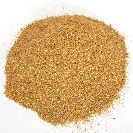 Feed for livestock. A lot of people forget that the milk and eggs and meat that they get from their own farm grown animals is not organic unless they are feeding organic! Feed is full of pesticides, GMO grains and unnecessary antibiotics. Read the labels. Remember that you are ultimately eating what they are eating.
Feed for livestock. A lot of people forget that the milk and eggs and meat that they get from their own farm grown animals is not organic unless they are feeding organic! Feed is full of pesticides, GMO grains and unnecessary antibiotics. Read the labels. Remember that you are ultimately eating what they are eating.
Apple
. The health benefits of apple include digestion, stomach disorders, anaemia, wekness, dental care, dysentry, heart disease, rheumatism, eye disorders, cancer, gout, and skin care. Apples can be eaten raw directly or through a variety of dishes such as fruit salads and custards. Apple juice is also a common drink throughout the world.
disease, rheumatism, eye disorders, cancer, gout, and skin care. Apples can be eaten raw directly or through a variety of dishes such as fruit salads and custards. Apple juice is also a common drink throughout the world.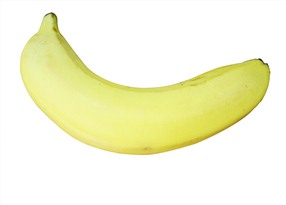 Bananas have high levels of toxic chemicals used on them. Benomyl has been linked to birth defects and chlorpyrifos is a neurotoxin. These are regularly used on banana crops. Some people feel that since the banana has a skin that is peeled off the pesticide dangers are less.
Bananas have high levels of toxic chemicals used on them. Benomyl has been linked to birth defects and chlorpyrifos is a neurotoxin. These are regularly used on banana crops. Some people feel that since the banana has a skin that is peeled off the pesticide dangers are less.
Celery and other vegetables that don't have a protective skin soak up the pesticides used on them. It is important to buy these itemsorganic.
 Cherry (scientific name is Prunus Avium), is one of the most romantic of fruits. You find them invariably on Greetings Cards, in poems and love-stories and the cherry blossoms are invariably associated with birth, marriage, turning points and even death of the heroes and heroines. Oh! I forgot to say that they are eaten too, and are eaten as favorites. Predominantly, a fruit of cold countries, cherries look and taste wonderful. Their vibrant color and tangy taste are just indicators of equally vibrant and magical health benefits these little fruits contain in them. I just cannot wait telling them to you.
Cherry (scientific name is Prunus Avium), is one of the most romantic of fruits. You find them invariably on Greetings Cards, in poems and love-stories and the cherry blossoms are invariably associated with birth, marriage, turning points and even death of the heroes and heroines. Oh! I forgot to say that they are eaten too, and are eaten as favorites. Predominantly, a fruit of cold countries, cherries look and taste wonderful. Their vibrant color and tangy taste are just indicators of equally vibrant and magical health benefits these little fruits contain in them. I just cannot wait telling them to you.
Olive oil production, processing and packaging is one of the most important economic activity in the Mediterranean region. Italy, Spain and Greece are the three largest producers of olive oil. These three countries in addition to the US are the top four countries that deal in olive oil trade.
Meat is a no brainer. While it does not necessarily have a lot of pesticide residues it does have huge amounts of growth hormones and antibiotics.
Chocolate is questionable, not just for the pesticide use but for the use of child labor. Organic chocolate is grown ethically and cleanly.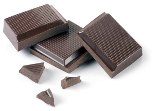
![]() Baby toys are one item that many people don't think about. Babies put things in their mouths and chew on them. Their systems are less able to cope with toxins than an adult body so it makes sense to use organics around them.
Baby toys are one item that many people don't think about. Babies put things in their mouths and chew on them. Their systems are less able to cope with toxins than an adult body so it makes sense to use organics around them.
Mattresses and especially crib mattresses should be organic. Mattresses have chemicals in them that release VOCs for a very long time. Consider that people spend about one third of their lives asleep and that babies sleep more than that and you will see why organic mattresses are important.
Consider that people spend about one third of their lives asleep and that babies sleep more than that and you will see why organic mattresses are important.
Mother Earth Foods
A good source of whole food grocery, organic foods, nutritional and herbal supplements, and body care products. Also, Mother Earth Foods offers a program called Holistic Health Services that supports clients through consultation and wellness education.
Where can I buy organic food?
Some of the avenues for buying organic food are given below:
Directly from an organic farm
Local organic food markets
Natural and organic food stores
Health food stores
Retail chains such as Walmart, Whole Foods
Conventional stores that also stock organic food
![]()
Disclaimer: This website is for information purposes only. By providing the information contained herein we are not diagnosing, treating, curing, mitigating, or preventing any type of disease or medical condition. Before beginning any type of natural, integrative or conventional treatment regime, it is advisible to seek the advice of a licensed healthcare professional.



























